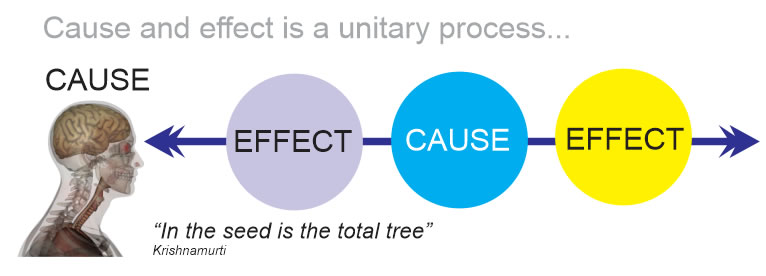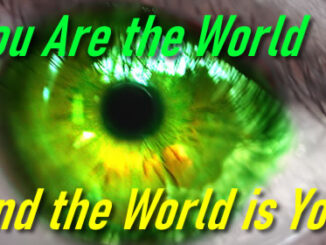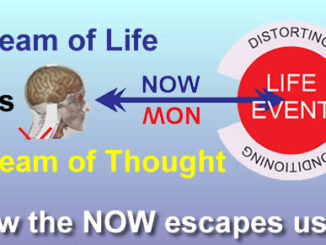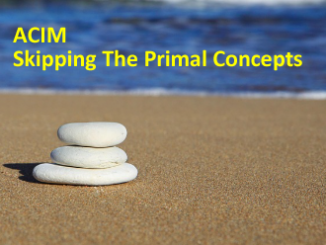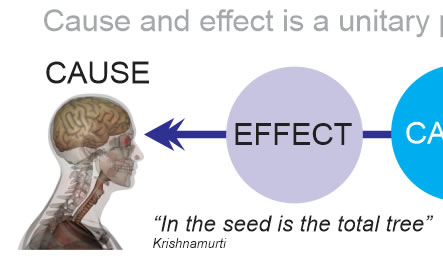
A Course in Miracles© speaks not infrequently on the topic of cause and effect, asserting the law of cause-and-effect is “the most fundamental law there is” (T-2.VII.1:4).
In the Quest book ‘Commentaries on Living’ (© 1988 Krishnamurti Foundation of America) ‘Why Should it Happen to Us’ on pages 58, 59, Krishnamurti adds another dimension to the simple appearing but always very confusing topic of cause and effect. In this statement he appears to be repeating his timeless message of breaking free of thought through the realization of its limitations. Here is the quote from ‘Commentaries on Living’:
“The mind need not be held by its conditioning. The effect of a cause is not bound to follow the cause, it may be wiped away. There’s no everlasting hell. Cause and effect are not static, fixed; what was the effect becomes the cause of still another effect. Today is shaped by yesterday, and to-morrow by today. That is true, is it not? So cause and effect are not separate, they are a unitary process. A wrong means cannot be used to a right end, because the means is the end; the one contains the other. The seed contains the total tree.
If one really feels the truth of this, then thought is action, with the inevitable problem of how to build a bridge between them. The total awareness of cause and effect as an indivisible unit puts an end to the maker of effort, the ‘I’ who’s everlastingly becoming something through some means.”
The conversation at this point to turns to karma, and one who is living and following from past environmental conditioning, and one at point breaks totally free of this conditioning. K points out that the part of the mind that ‘breaks free’ of the conditioning is also conditioned. He points out that in breaking free of one pattern, the mind creates another, in which it is again caught. K summarizes this this statement, which is really a summary of all his teachings:
“When the mind realizes the totality of its own conditioning – which it cannot do as long as it is merely pursuing its own comfort, or lazily taking the easy course – then all its movements come to an end; it is completely still, without any desire, without any compulsion, without any motive. Only then is there freedom. The action of love has no motive, and every other action has’.”
I cannot interpret or help with the meaning of this. Krishnamurti appeared to live this, but I have not, and thus mine is simply and intellectual understanding of where he was pointing. As he stated so often, we must do this for ourselves. Please comment if you have practical suggestions.
Re: ‘A wrong means cannot be used to a right end’ – this reminds me of a statement of Martin Luther King:
‘Hate cannot be displaced by hate, only love can do that’.

